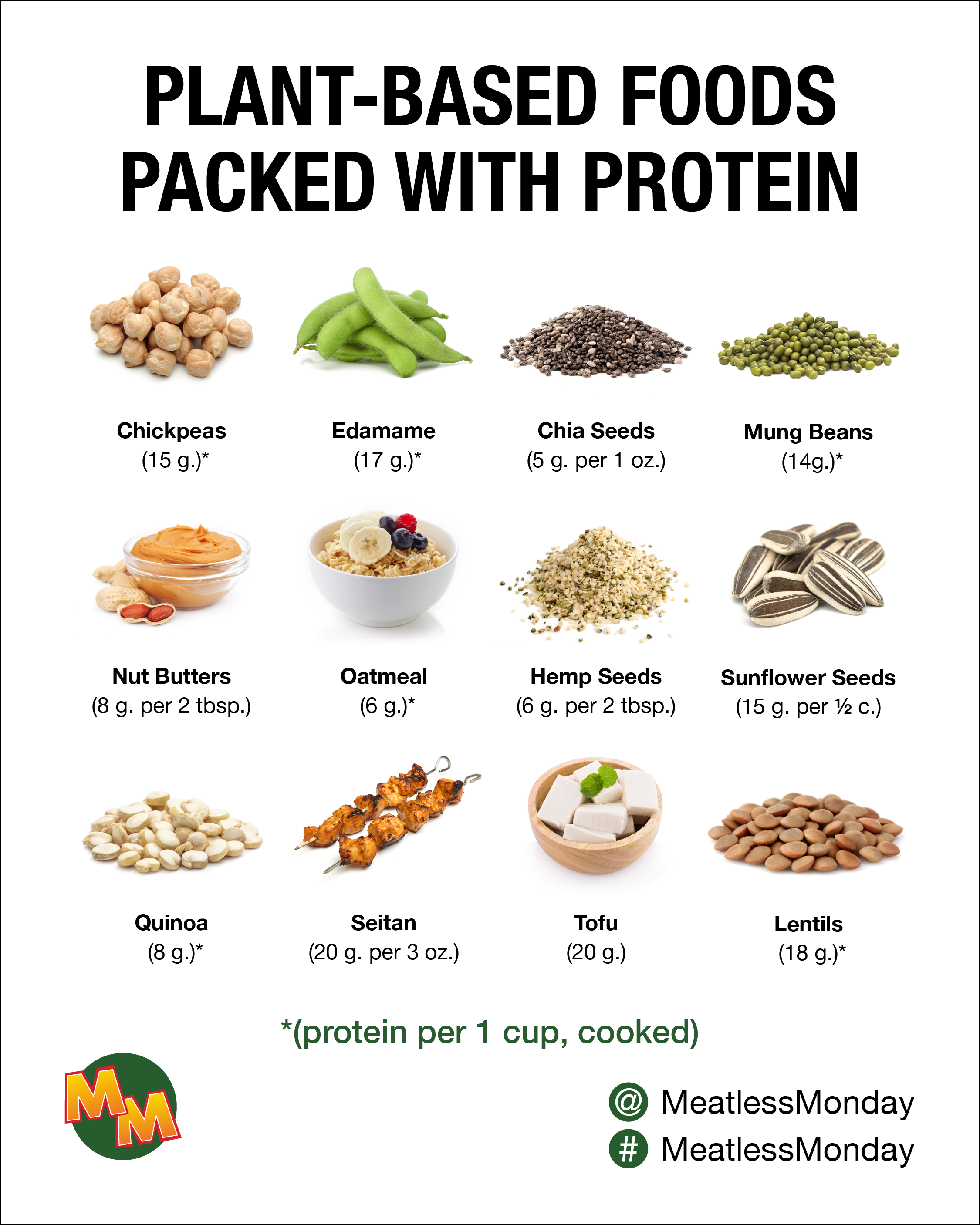A Beginner’s Guide to Cooking With Plant Based Chicken at Home
Everything About Healthy And Balanced Food: Benefits of Checking Out Plant Based Choices
The conversation surrounding plant-based diet regimens has actually gotten substantial interest over the last few years. Several people are exploring the prospective health and wellness benefits, nutritional benefits, and environmental effects connected with these dietary selections. As people become more familiar with their food's impact on wellness and sustainability, inquiries arise about the practicalities of taking on such a way of living. What specific adjustments can one expect, and just how might these choices reshape not just individual wellness yet likewise the earth's future?
Recognizing Plant-Based Diet Regimens
Although many individuals associate plant-based diet regimens mainly with vegetarianism or veganism, these diet plans can include a vast array of eating patterns that prioritize whole, minimally refined plant foods. Such diets commonly include fruits, vegetables, whole grains, vegetables, nuts, and seeds, while limiting or eliminating animal items. This versatility permits people to customize their nutritional choices according to individual choices and dietary demands. Some might adopt a mostly plant-based diet plan while still occasionally consuming meat or milk, typically referred to as a flexitarian approach. The emphasis continues to be on incorporating even more plant foods, which can bring about a varied selection of meals and tastes. Recognizing these various interpretations of plant-based consuming is important for appreciating its access and charm in contemporary food society.
Health And Wellness Perks of Plant-Based Foods
The health and wellness benefits of plant-based foods are significant, using a nutrient density advantage that supports total wellness. Research shows that these foods can enhance heart health and play an essential duty in effective weight administration. By incorporating more plant-based choices, people might improve their dietary choices and advertise long-lasting wellness.
Nutrient Density Benefit
Nutrient density plays an important duty in the health benefits of plant-based foods, making them an engaging choice for those seeking a balanced diet. Plant-based foods, such as fruits, veggies, vegetables, nuts, and entire grains, are typically rich in vital vitamins, minerals, and antioxidants while being lower in calories. This high nutrient density permits people to eat less calories while still meeting their nutritional demands. Additionally, these foods are loaded with dietary fiber, advertising gastrointestinal wellness and helping in weight management. By including nutrient-dense plant-based alternatives, customers can improve their general health and wellness, sustain their immune systems, and decrease the risk of chronic diseases. Inevitably, the nutrient thickness of plant-based foods underscores their significance in a health-conscious way of living.
Heart Health Improvement

Weight Monitoring Assistance
In enhancement to advertising heart health, a plant-based diet regimen can substantially aid in weight monitoring. This nutritional strategy emphasizes entire foods such as fruits, vegetables, beans, nuts, and whole grains, which are normally lower in calories and higher in fiber contrasted to animal-based products. The high fiber web content helps raise satiation, minimizing total calorie consumption. Moreover, plant-based diet regimens are typically abundant in vital nutrients while low in harmful fats, making it less complicated to preserve a healthy weight. Plant Based Chicken. Study suggests that people who adopt a plant-based way of life tend to have lower body mass indexes (BMIs) and experience even more successful weight reduction contrasted to those that take in meat-heavy diet regimens. Consequently, accepting plant-based alternatives is a critical option for effective weight management
Nutritional Worth of Plant-Based Components
Plant-based ingredients are abundant in necessary nutrients, using a diverse variety of vitamins, minerals, and anti-oxidants that add to total health and wellness. A contrast of protein resources reveals that while animal items are usually seen as superior, numerous plant-based choices supply appropriate protein and other valuable substances. Recognizing the dietary value of these active ingredients can assist individuals make informed nutritional choices.
Important Nutrients in Plants
Nutrient-rich active ingredients discovered in plants offer a varied range of essential nutrients that add significantly to total wellness. These components are abundant in vitamins A, C, and K, which support immune function, vision, and blood clot, respectively. On top of that, plants give essential minerals such as calcium, magnesium, and potassium, essential for heart health, muscular tissue feature, and bone strength. The existence of fiber in plant-based foods aids food digestion and promotes a healthy and balanced digestive tract microbiome. Antioxidants, discovered abundantly in veggies and fruits, assistance combat oxidative stress and decrease inflammation. Lots of plant foods are low in calories yet high in nutrients, making them an excellent choice for those looking for to keep a healthy and balanced weight while guaranteeing suitable nutrient intake.

Contrasting Healthy Protein Resources
Healthy protein sources differ considerably her comment is here in their dietary profiles, with plant-based active ingredients using one-of-a-kind benefits. Unlike pet proteins, which commonly include saturated fats and cholesterol, plant proteins often tend to be lower in these harmful elements. Legumes, nuts, seeds, and whole grains are abundant in important amino acids, fiber, vitamins, and minerals. Lentils give high healthy protein web content along with considerable iron and folate, while quinoa is a full protein, providing all nine necessary amino acids. In addition, plant-based proteins are usually gone along with by antioxidants and phytochemicals that sustain total health. The change to plant-based healthy protein resources not just enhances dietary intake yet additionally straightens with sustainable nutritional techniques, minimizing environmental effect and promoting long-lasting health and wellness benefits.
Environmental Effect of Plant-Based Consuming
As awareness of environment modification grows, several people are exploring sustainable dietary choices that can significantly decrease their environmental impact. Plant-based consuming has actually emerged as a substantial contributor to lowering greenhouse gas exhausts, which are largely connected with animals production. The growing of fruits, veggies, grains, and vegetables commonly calls for fewer sources, such as water and land, contrasted to pet farming. Additionally, plant-based diets can bring about lowered deforestation, as less land is required for grazing livestock or growing pet feed. By shifting in the direction of plant-based alternatives, consumers can support biodiversity and advertise much healthier ecosystems. On the whole, accepting plant-based consuming not only benefits individual health and wellness however likewise stands for an essential step toward ecological sustainability and preservation efforts.
Overcoming Common Misconceptions
While numerous individuals acknowledge the advantages of a plant-based diet, several mistaken beliefs usually discourage them from totally accepting this way of life. An usual idea is that plant-based diets do not have enough healthy protein; nevertheless, countless plant resources, such as vegetables, nuts, and tofu, supply ample healthy protein. Furthermore, some think that this diet regimen is costly, when in fact, staples like beans, rice, and seasonal veggies can be rather cost effective. An additional misconception is that plant-based eating is excessively limiting, whereas it actually offers a varied range of flavors and foods. Finally, several worry that a plant-based diet plan might result in deficiencies, yet with appropriate preparation, people can get all needed nutrients, including minerals and vitamins, while enjoying a wide range of scrumptious meals.
Tips for Transitioning to a Plant-Based Way of living
Making the change to a plant-based way of life can be an improving experience, though it typically calls for some support to navigate the initial modifications. Individuals are encouraged to begin gradually, incorporating even more fruits, vegetables, legumes, and entire grains right into their meals while minimizing meat and dairy consumption. Meal planning is vital; preparing a weekly menu can help alleviate the adjustment and protect against final unhealthy options. Checking out new recipes and cooking methods can additionally boost the experience and maintain excitement about plant-based eating. Additionally, signing up with support system or areas can supply inspiration and share important suggestions. Ultimately, staying notified concerning nourishment guarantees balanced meals, avoiding site shortages while fostering a healthy and balanced, satisfying plant-based way of life.
Delicious Plant-Based Meal Ideas
Discovering delicious plant-based dish ideas can motivate individuals to accept a more healthy diet plan. One popular option is a passionate quinoa salad, featuring cherry tomatoes, cucumber, and a vibrant lemon-tahini clothing. One more favorite is a tasty lentil stew, loaded with carrots, celery, and great smelling herbs, ideal for a reassuring dinner. For breakfast, over night oats made with almond milk, chia seeds, and topped with fresh berries offer a nutritious start to the day. In visit here addition, a vibrant veggie stir-fry with tofu and a selection of vibrant veggies can be a fast yet pleasing dish. Luscious avocado salute on whole-grain bread, sprayed with spices and seeds, provides a straightforward yet tasty treat. These dishes showcase the variety and richness of plant-based eating.

Frequently Asked Inquiries
Can a Plant-Based Diet Plan Supply Sufficient Healthy Protein?
The question of whether a plant-based diet plan can supply enough protein prevails. Various sources, consisting of vegetables, nuts, seeds, and entire grains, can meet healthy protein requires successfully, sustaining a well balanced and nourishing diet for individuals.
Are Plant-Based Diet Plans Suitable for Kid?
The suitability of plant-based diet regimens for kids depends upon mindful planning. Sufficient nutrients should be ensured, consisting of vitamins, proteins, and minerals. With correct advice, such diets can sustain healthy growth and development in kids.
How Do I Eat Out on a Plant-Based Diet regimen?
Dining out on a plant-based diet regimen entails looking for dining establishments with diverse menus, asking for alterations, and exploring vegan-friendly choices. Planning in advance and connecting dietary preferences can boost the dining experience while keeping dietary options.
What Prevail Irritants in Plant-Based Foods?
Typical irritants in plant-based foods consist of soy, gluten, nuts, and seeds - BBQ Sauces. Individuals complying with a plant-based diet regimen needs to know these irritants and check out tags very carefully to prevent adverse reactions and guarantee safe intake
Can Plant-Based Diets Help With Fat Burning?
Research shows that taking on a plant-based diet may help with weight loss due to its commonly lower calorie thickness and higher fiber web content. This mix can improve satiety, helping people handle their caloric consumption efficiently. Several people link plant-based diet regimens mostly with vegetarianism or veganism, these diet regimens can incorporate a large range of eating patterns that focus on entire, minimally refined plant foods. Nutrient density plays a crucial role in the health benefits of plant-based foods, making them a compelling option for those seeking a well balanced diet plan. Plant-based diet regimens have actually been revealed to markedly enhance heart health and wellness, as they commonly have elements that sustain cardiovascular function. In enhancement to promoting heart health, a plant-based diet can significantly aid in weight monitoring. An usual idea is that plant-based diets lack adequate protein; nonetheless, many plant sources, such as beans, nuts, and tofu, provide sufficient healthy protein.